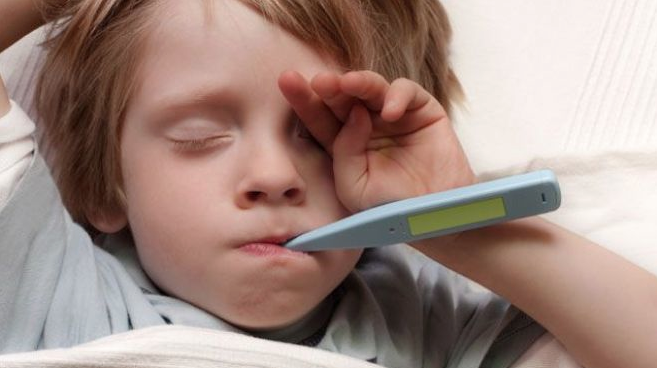Measles is a highly contagious viral illness which is most characterised by a skin rash and fever. Most children and adults (aside from pregnant women) can be immunised against measles. Measles has become quite rare in Australia due to the vaccination rates, however in recent times there have been several outbreaks as our immunisation levels have fallen.
What Causes Measles?
The Measles virus is contained within mucus or saliva droplets and can remain alive for several hours outside of the body, which means Measles is most commonly spread when someone inhales or swallows these cough of sneeze droplets from an infected person. Once infected symptoms usually begin to appear after 10 -12 days.
What are the symptoms of Measles?
- Common Cold symptoms including runny nose, dry cough and a feeling of generalised illness or discomfort.
- Fever
- Sore and Red Eye
- A red and blotchy skin rash which first appears along the hairline and face before spreading to other parts of the body.
- Red and bluish spots may also appear inside the mouth, these are known as Koplik’s spots.
Complications of Measles
- Diarrhoea and vomiting
- Respiratory infections such as bronchitis, croup and laryngitis
- Middle ear inflammation
- Pneumonia
- Brain inflammation/encephalitis occurs in approximately 1 out of 1000 measles infections. This condition can lead to permanent brain damage or even death in around 10 – 15% of cases.
- Premature birth or miscarriage in women who are pregnant.
How is Measles Diagnosed?
Measles may be diagnosed through a physical examination by a qualified health professional in conjunction with a review of your health history (including immunisation status) and a blood test may also be conducted.
How is Measles Treated?
A typical non complicated case of Measles will last around 14 days. As it is a viral illness, antibiotics are not given as they will not work. Treatment options generally will include:
- Isolation to reduce the risk of passing the illness on to others
- Bed rest
- Maintain fluids to prevent dehydration
- Paracetamol to reduce fever and pain.
What do I do if I’ve been in contact with someone who has Measles?
If you find yourself in the situation where you’ve been in contact with someone who is infected with the Measles virus, it’s essential to speak with a Doctor as soon as possible. Some of your possible options are:
- If your contact was within the last 72 hours, you may be offered a measles immunisation immediately.
- If your contact was between three to seven days ago, you may be given immunoglobulin as a form of passive immunisation.
If you suspect that yourself or a family member has Measles or has been in contact with someone who does have Measles, it’s important to contact your Doctor immediately to discuss your treatment options.
Disclaimer: The content on this website is not intended to be a substitute for professional medical advice, diagnosis, or treatment. Always seek the advice of your physician or other qualified health provider with any questions you may have regarding a medical condition. Never disregard professional medical advice or delay in seeking it because of something you have read on this Website.










